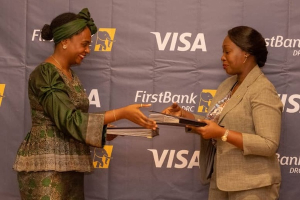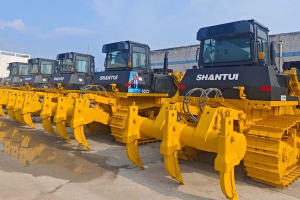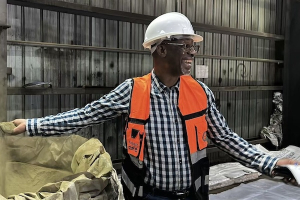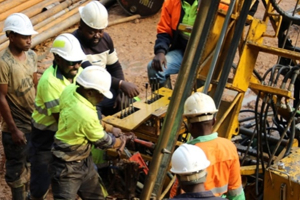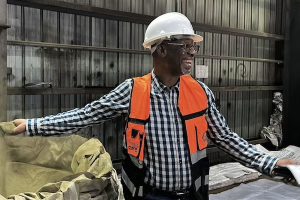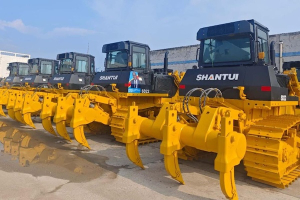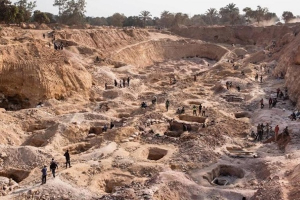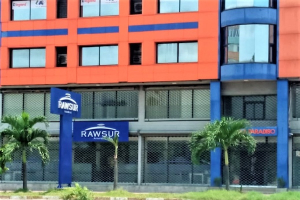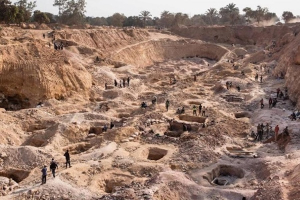Equipe Publication
Nord-Kivu : la campagne de rachat d’armes gelé pour des risques d’image et de sécurité
Par un message daté du 14 novembre 2025 et adressé au gouverneur militaire du Nord-Kivu, le général-major Somo Kakule Evariste, le vice-Premier ministre en charge de l’Intérieur, de la Sécurité, de la Décentralisation et des Affaires coutumières, Jacquemain Shabani, a ordonné la suspension de l’opération « armes contre argent » lancée par le gouvernement provincial. Ce télégramme, diffusé depuis le 19 novembre par des journalistes proches du gouvernorat, enjoint d’interrompre l’opération « toutes affaires cessantes ».
Le ministre de l’Intérieur justifie cette suspension par le risque d’atteinte à « l’image exemplaire du pays vis-à-vis des Nations unies » et par la possibilité d’une aggravation de la situation sécuritaire dans la province, estimant qu’un encadrement préalable est nécessaire. Il précise que l’opération est gelée dans l’attente d’une réunion de cadrage entre son ministère et celui de la Défense nationale et des Anciens combattants.
Cette opération d’achat d’armes détenues illégalement par des tiers avait été initiée, le 29 octobre 2025, par le gouverneur militaire afin de faire face à la recrudescence de l’insécurité dans la province, dans un contexte marqué par la multiplication des braquages d’institutions financières, des incursions nocturnes dans les domiciles et des meurtres attribués à des hommes armés, notamment dans les villes de Beni et Butembo.
L’arrêté provincial prévoyait une contrepartie financière de 100 dollars pour une arme de type AK-47 ou équivalent, 200 dollars pour une arme d’appui et un dollar par munition, tout en garantissant la discrétion des personnes participant à l’opération ainsi que l’absence de poursuites judiciaires pendant toute sa durée.
Timothée Manoke
Lire aussi :
Nord-Kivu : un programme de rachat d’armes pour tenter d’enrayer l’insécurité
Paiements numériques : FirstBank s’allie à Visa pour améliorer son offre en RDC
Le 19 novembre 2025, FirstBank RDC, filiale du groupe nigérian First Bank of Nigeria (FBN Holdings), et Visa, leader mondial des paiements digitaux, ont signé un partenariat visant à moderniser l’écosystème de paiement numérique de la banque en République démocratique du Congo.
Conclu pour une durée de trois ans, l’accord prévoit l’intégration des solutions technologiques de Visa afin d’enrichir les services numériques et les fonctionnalités des cartes virtuelles proposées aux clients. Dans ce cadre, FirstBank lancera une nouvelle gamme de cartes : Visa Infinix Card (premium) destinée à une clientèle VIP, Corporate Card pour les entreprises, et Prepaid Card dédiée aux transactions des petites et moyennes entreprises (PME). Ces innovations seront accompagnées d’outils de suivi plus flexibles.
Selon Gisele Lutundula, directrice générale adjointe de FirstBank, cette initiative vise à diversifier l’offre de produits pour répondre aux besoins d’un marché congolais en pleine évolution. Les solutions de paiement seront adaptées aux réalités locales, notamment dans les zones peu desservies, afin de garantir des transactions sécurisées, en particulier pour les PME.
De son côté, Sophie Kafuti, directrice générale de Visa RDC, a indiqué que Visa apportera un appui technologique pour accélérer le déploiement des nouveaux produits, ainsi qu’un accompagnement en formation destiné aux équipes de la banque et aux utilisateurs finaux. Le partenariat inclut également un soutien financier pour élargir l’accès aux services et renforcer l’inclusion financière en RDC.
Lors de la cérémonie, Aminata Kane, Senior Vice-président Visa pour l’Afrique de l’Ouest et l’Afrique, a salué le potentiel du marché congolais et l’importance du rôle de FirstBank dans l’écosystème financier national. En 2024, FirstBank RDC a enregistré une croissance de 71 % de ses actifs, atteignant 4 476 milliards CDF (1,57 milliard dollars), portée par une hausse des dépôts clients et l’expansion de son portefeuille de crédits. La banque prévoit de renforcer sa présence dans la région minière du Grand Katanga, d’accroître de 30 % les revenus issus des produits numériques et d’atteindre 100 000 agents bancaires d’ici 2029.
Ronsard Luabeya
Lire aussi :
Expansion : First Bank RDC vise 100 000 agents bancaires d’ici 2029
Kinshasa : Visa lance une application pour élargir l’accès aux services financiers
DRC Receives First Shipment of Construction Equipment Under Guma Road Partnership
The Democratic Republic of Congo (DRC) has received its first shipment of Chinese-made construction equipment under a major road partnership with South African group Guma.
Infrastructure and Public Works Minister John Banza Lunda oversaw the arrival of 200 units of civil engineering machinery from China on November 14, according to an official statement. The shipment included dump trucks, bulldozers and various utility vehicles.
The equipment is the first batch of a 5,600-unit order tied to a partnership announced by the Prime Minister’s Office in February 2024 at the Mining Indaba forum in South Africa. At the time, the government said it had reached an agreement with the Development Bank of Southern Africa (DBSA) and Guma Africa to support an extensive road development program.
The contract covers a planned network of 180,000 kilometers of roads, valued at 450 million dollars. The financing is intended to support equipment purchases, road rehabilitation and maintenance by the Ministry of Infrastructure, and training for operators and technicians within the Roadways and Drainage Authority (OVD) and the Road Office (OR).
Financing and Delays
Although the project was initially expected to roll out over three years, the Ministry of Infrastructure said the contract was not formally signed until August 29, 2025.
The financing structure remains unclear. The Ministry only specified that the project is being “financed without a sovereign guarantee.” The arrangement appears to follow a leasing model in which DBSA acts as the financier, Guma supplies the machinery and the Congolese state leases the equipment. The government would use the machines for road works and repay the cost through lease fees, with ownership passing to the state once the full amount is covered.
Technical details for the planned roads have not yet been released, but the announced budget indicates that the work will mainly involve dirt roads.
In February 2024, the Prime Minister’s Office described the program as a major boost to the Local Development Program for 145 Territories (PDL-145T). The second phase of the PDL-145T, launched in the third quarter of 2022, covers the rehabilitation of more than 38,000 kilometers of rural access roads and related infrastructure, at a cost of 1.25 billion dollars. How the two road programs will be coordinated is still unclear.
During his visit to the DRC on August 29, Guma Group CEO Robert Gumede said the project “will transform the lives of Congolese people by reducing transport costs and stimulating agriculture and industry.” He added that the main objective is to improve links between urban and rural areas to support mobility and strengthen regional integration.
Pierre Mukoko & Timothée Manoke
DRC Showcases 1,000 Tons of Artisanal Cobalt as EGC Pushes for Sector Reform
Entreprise Générale du Cobalt (EGC), a subsidiary of state-owned Gécamines, presented 1,000 tons of artisanally mined cobalt on November 13, 2025, describing the material as “structured, ethical and traceable.”
The event, titled “1,000 Tons of Future,” aimed to demonstrate to markets and investors that artisanal cobalt can meet international expectations on transparency, profitability, and ESG compliance.
EGC General Director Eric Kalala said the company hopes to attract investment that will help build a competitive, nationally controlled artisanal mining industry.
An Informal Sector with Heavy Reliance
The Democratic Republic of Congo (DRC) holds about 72 percent of global cobalt reserves and supplies more than 74 percent of world production. EGC estimates that a significant share of this output comes from artisanal mining, a sector that employs between 1.5 million and 2 million people and supports more than 10 million others.
Despite its economic importance, the sector operates largely outside formal structures. It is marked by non-transparent buying practices, low prices, unsafe working conditions and the dominance of unregulated intermediaries. These problems prompted the U.S. Labor Department to add Congolese cobalt to its 2024 list of goods suspected of being produced with child labor.
Created in 2019, EGC is mandated to organize, purchase and market artisanal cobalt while improving traceability, compliance and fair pay. The company also aims to increase local value addition through small-scale processing, strengthen cooperatives and offer miners more predictable incomes.
Push for Transparency
To carry out its mission and secure financing, EGC says it has developed a model designed to bring the artisanal segment up to international standards.
“The company is deploying controlled mining zones with weighing stations, direct-payment systems and digital tracking tools to ensure every ton is traceable from the mining site to processing,” EGC said.
However, EGC did not disclose where the 1,000 tons presented in Kolwezi were mined. The lack of clarity is significant for industrial buyers, who frequently accuse artisanal miners of entering their concessions illegally. Such incursions regularly spark disputes and, according to the Federation of Congolese Enterprises, have caused nearly 3 billion dollars in losses for one mining company.
Government Response
In response, President Félix-Antoine Tshisekedi announced several measures during the 47th Council of Ministers in Kolwezi on June 13, 2025. These include quickly designating legal artisanal mining zones and opening discussions with mining companies, including Gécamines, to release specific land parcels.
Gécamines had already made five pilot sites available to EGC around Kolwezi in February 2024. The sites were intended to support a roadmap to gradually formalize the artisanal cobalt sector. An exploration program began soon after, and EGC announced in September 2024 that targeted drilling would start on one of the locations. Results have not yet been published.
Pierre Mukoko & Ronsard Luabeya
Bisie North : Rome Resources veut lever 2,4 millions $ pour ses forages
Rome Resources a annoncé, le 19 novembre 2024, son intention de lever 1,9 million de livres sterling (2,4 millions USD) via un placement d’actions. Les fonds serviront à financer un nouveau programme de forage sur le projet d’étain Bisie North, que la société britannique explore en République démocratique du Congo.
Selon Rome Resources, la campagne visera à tester les cibles prioritaires du site, notamment les zones plus profondes des gisements Kalayi et Mont Agoma. La société estime que ces travaux présentent un potentiel de découverte compris entre 53 000 et 144 000 tonnes de ressources minérales, ce qui permettrait d’accroître ou d’affiner les 10 600 tonnes de ressources inférées déclarées le mois dernier à Bisie North.
« Le conseil d’administration est très encouragé par les fondements techniques établis par la première estimation des ressources minérales, qui met clairement en évidence le potentiel à haute teneur de Kalayi et de Mont Agoma. Nous sommes impatients de tester le potentiel à haute teneur en étain de Kalayi en profondeur, un atout majeur indiqué par la récente estimation des ressources », a déclaré Paul Barrett, directeur général de Rome Resources.
Dans l’attente du financement, la compagnie prévoit de démarrer les forages « dans environ deux semaines ». Les travaux devraient s’étendre sur 3 à 4 mois. Si les objectifs sont atteints, Bisie North pourrait renforcer la production congolaise d’étain, aujourd’hui portée à 99 % par la mine Bisie d’Alphamin Resources.
Aurel Sèdjro Houenou, Agence Ecofin
Lire aussi :
Etain : Rome Resources veut passer à la vitesse supérieure avec son projet Bisie North
Étain : hausse des prix jusqu’en 2027, mais la RDC reste à la marge de la valeur ajoutée
Cobalt artisanal : EGC mise sur 1 000 tonnes « traçables » pour attirer les investisseurs
Le 13 novembre 2025, l’Entreprise générale du cobalt (EGC), filiale de la Gécamines, a présenté à Kolwezi une production de 1 000 tonnes de cobalt artisanal, qualifiée de « structurée, éthique et traçable ». Pour l’entreprise, l’évènement, baptisé « 1 000 Tonnes d’Avenir », constitue un « signal fort » envoyé aux marchés et aux investisseurs, démontrant que « son cobalt peut être propre, rentable et aligné sur les standards ESG internationaux ».
L’objectif est d’attirer des investissements dans un secteur que l’EGC veut « transformer en une fierté nationale et un actif stratégique sous contrôle congolais », selon son directeur général, Eric Kalala.
La RDC détient environ 72 % des réserves mondiales connues de cobalt et fournit plus de 74 % de la production mondiale de ce minerai critique, essentiel aux batteries et aux véhicules électriques. Selon l’EGC, une part non négligeable de cette production provient de l’exploitation artisanale, un secteur employant entre 1,5 et 2 millions de Congolais, et dont vivent indirectement plus de 10 millions de personnes.
Malgré son importance socio-économique, ce segment reste largement informel, dominé par des intermédiaires souvent illégaux, avec des pratiques d’achat opaques, des prix injustes et des conditions de travail précaires. Fin 2024, le ministère américain du Travail a d’ailleurs inscrit le cobalt congolais sur sa « liste noire » des produits susceptibles d’être issus du travail des enfants.
Pour remédier à ces dérives, l’EGC a été créée en 2019 avec pour mission d’organiser, acheter et commercialiser les minerais stratégiques issus de la production artisanale, en assurant traçabilité, conformité et équité. Elle ambitionne également de renforcer la valeur locale grâce à la transformation semi-industrielle, de professionnaliser les coopératives minières et de garantir des revenus stables et équitables pour les creuseurs.
Besoin de plus de transparence
Pour remplir ce mandat, l’EGC a besoin de financements. Et pour attirer les investisseurs, elle doit aligner le secteur artisanal sur les standards internationaux afin de faciliter la commercialisation de sa production. EGC affirme avoir développé un modèle en ce sens : « L’entreprise déploie des zones minières contrôlées, équipées de dispositifs de pesée, de mécanismes de paiement direct et de systèmes numériques de suivi, garantissant que chaque tonne soit traçable du site artisanal jusqu’à l’usine de transformation », décrit-elle.
Cependant, l’EGC n’a pas précisé les sites exacts d’où proviennent les 1 000 tonnes présentées à Kolwezi. Ces informations sont pourtant essentielles pour rassurer les mineurs industriels susceptibles de racheter cette production, eux qui accusent régulièrement les exploitants artisanaux d’empiéter illégalement sur leurs concessions. Ces intrusions provoquent des tensions récurrentes entre creuseurs et sociétés minières. Selon la Fédération des entreprises du Congo, elles auraient déjà fait perdre près de 3 milliards de dollars à une société minière de la région.
Face à ces enjeux, le président de la République, Félix-Antoine Tshisekedi, avait annoncé, lors du 47ᵉ Conseil des ministres tenu à Kolwezi le 13 juin 2025, plusieurs mesures, dont l’identification rapide de zones légales dédiées à l’artisanat minier et l’ouverture de discussions avec les entreprises minières, notamment la Gécamines, pour libérer certaines parcelles.
En février 2024, la Gécamines avait déjà mis à disposition de l’EGC cinq sites pilotes autour de Kolwezi afin d’élaborer un schéma directeur visant à transformer progressivement l’ensemble du secteur artisanal. Un programme d’exploration y a été lancé, et en septembre 2024, l’entreprise avait annoncé le démarrage imminent d’un forage ciblé sur l’un de ces sites. Les résultats n’ont toutefois pas encore été rendus publics.
Pierre Mukoko et Ronsard Luabeya
Lire aussi :
Mines artisanales : la RDC avance vers un modèle d’exploitation éthique et responsable
Exploitation artisanale responsable : Éric Kalala décroche un financement de 2 millions $
Cobalt : la part de l’artisanat dans la production de la RDC chute à 2 % en 2024 (rapport)
Cobalt : la RDC attribue les quotas, CMOC capte la plus grosse part mais…
Projet Guma : premiers équipements expédiés en RDC, mais des zones d’ombre persistent
En marge de sa mission de travail en République populaire de Chine, le ministre des Infrastructures et Travaux publics, John Banza Lunda, a supervisé, le 14 novembre dernier, l’expédition d’un lot de 200 engins de génie civil à destination de la RDC, selon une communication officielle de son ministère. Il s’agit de camions-bennes, de bulldozers et de véhicules d’itinérance.
Selon la même communication, ce premier lot constitue une partie d’une commande totale de 5 600 équipements prévue dans le cadre du partenariat conclu avec le groupe sud-africain Guma. En février 2024, lors du forum minier Mining Indaba en Afrique du Sud, la Primature avait annoncé la signature d’un contrat entre le gouvernement congolais, la Development Bank of Southern Africa (DBSA) et Guma Africa.
Toujours selon la Primature, ce contrat porte sur la construction de 180 000 kilomètres de routes pour un montant global de 450 millions de dollars américains. Le financement devait permettre l’acquisition des équipements de construction, la réhabilitation et l’entretien des routes par le ministère des ITPR, ainsi que le renforcement des capacités de l’Office des voiries et drainage (OVD) et de l’Office des routes (OR), incluant la formation des opérateurs et techniciens.
Zones d’ombre
Si la mise en œuvre était initialement prévue sur trois ans, le contrat n’aurait finalement été signé que le 29 août 2025, selon une communication du ministère des ITPR. Pour l’heure, le montage financier du projet demeure peu clair. Le ministère s’est limité à préciser qu’il est « financé sans garantie souveraine ». À l’observation, le partenariat s’apparente à un contrat de leasing indirect d’équipements de génie civil. Dans cette hypothèse, la DBSA jouerait le rôle de bailleur, Guma celui de fournisseur et l’État congolais celui de preneur. Ce dernier utiliserait ensuite les équipements pour construire et réhabiliter ses routes, et paierait des loyers destinés à couvrir le coût d’achat desdits équipements. Et ceux-ci ne deviendraient sa propriété qu’une fois l’argent complètement remboursé.
Les caractéristiques techniques des routes à construire ne sont pas encore connues, mais le coût annoncé laisse supposer qu’il s’agirait essentiellement de routes en terre. En février 2024, la Primature présentait ce programme comme « un véritable coup d’accélérateur pour le Programme de développement local des 145 territoires (PDL-145T) ».
Dans son deuxième volet, dont la mise en œuvre a débuté au troisième trimestre 2022, le PDL-145T prévoit la réhabilitation et l’entretien de plus de 38 000 km de routes de desserte agricole et d’ouvrages d’art, pour un coût total de 1,250 milliard de dollars, selon un rapport du ministère des Finances. Pour l’instant, on dispose pas d’éléments sur la manière dont les deux programmes s’articulent.
« Ce programme transformera la vie des Congolais, en réduisant les coûts de transport et en stimulant l’agriculture et l’industrie », déclarait le PDG du groupe Guma, Robert Gumede, lors de sa visite en RDC le 29 août dernier. Son objectif serait d’améliorer la connexion entre zones urbaines et rurales afin de faciliter la mobilité et de renforcer l’intégration régionale.
Pierre Mukoko et Timothée Manoke
Lire aussi :
Entretien de routes agricoles : le PNDA vise 707 km au Kasaï Central
Kongo central : la réhabilitation de 550 km de routes de desserte agricole lancé
Zones agricoles : Muhindo Nzangi et son projet de 11 000 km de voies de desserte
Kinshasa Extends Closure of 38 Mines to Curb M23 Funding
-
DR Congo's Mines Minister Louis Watum Kabamba signed an order on November 3, 2025, extending for six months the "red status" on 38 mining sites in North and South Kivu to limit revenue for the M23 rebel group.
-
The extension aims to reduce the financial resources of the rebels, as illegal mining activities are considered their primary source of funding, estimated at $300,000 to $800,000 per month.
-
The "red status" prohibits extraction and legal trade of minerals from these sites, although UN experts report systematic smuggling and mixing with Rwandan production.
According to an announcement by the Ministry of Mines, Minister Louis Watum Kabamba signed an order on November 3, 2025, extending for six months the "red status" applied to 38 mining sites in North Kivu and South Kivu. This decision prolongs an initial measure taken in February 2025 by his predecessor, originally valid for six months, targeting concessions in Masisi and Kalehe territories, which have fallen under M23 influence since 2024.
This extension aligns with the Congolese government's strategy to reduce rebel financial resources. Kinshasa considers illegal mining activities the movement's primary source of financing. In October 2024, Bintou Keita, head of MONUSCO, estimated that taxes imposed by rebels in mining areas under their control generated approximately $300,000 per month. A report published in December of the same year valued these monthly revenues at $800,000.
These revenues would supplement those derived from the Twangiza gold mine in South Kivu, where the operating company claims illicit sales by rebels reached $70 million since May 2025. These estimates illustrate the mining sector's importance in financing the rebellion.
According to the order signed on November 3, the new six-month period commences on August 12, 2025, the expiration date of the previous regulatory act. The "red status" classification prohibits all extraction activities and renders illegal the commercialization of coltan, cassiterite, and other minerals originating from these sites, thus limiting their access to formal channels.
To circumvent these restrictions, smuggling networks rely on already documented money laundering mechanisms. The United Nations Group of Experts report published in July 2025 indicates that 3T minerals—tin (cassiterite), tungsten (wolframite), and tantalum (coltan)—originating from M23-controlled areas are systematically mixed with Rwandan production before export. Experts report approximately 686 tons of minerals clandestinely exited the region since January 2025.
These elements reinforce the Congolese government's position, which views the mining sector as an essential lever to dry up rebel financing.
This article was initially published in French by Timothée Manoke
Adapted in English by Ange Jason Quenum
Assurance : RAWSUR décroche le double A de GCR Ratings
Selon un communiqué de RAWSUR Assurance, ses deux filiales — RAWSUR SA et RAWSUR LIFE SA — ont obtenu la notation AA (CD) avec perspective stable, délivrée par GCR Ratings, une agence affiliée à Moody’s Investors Service, à l’issue d’un audit initié au premier trimestre 2025.
Pour l’assureur, cette notation confirme sa capacité à honorer ses engagements à long terme. Elle constitue une reconnaissance de la solidité de son bilan, de sa liquidité, de sa gouvernance, ainsi que de la qualité de sa gestion des risques.
La notation nationale AA (CD) attribuée aux deux entités indique une « très forte crédibilité relative » parmi les acteurs domestiques congolais. Les échelles nationales de Moody’s sont conçues pour mesurer la solvabilité des émetteurs au sein d’un même pays, sans comparaison directe avec les notations attribuées à des émetteurs étrangers.
Moody’s précise également que la perspective stable signifie qu’aucune modification significative de la note n’est anticipée à court ou moyen terme, sur la base des informations disponibles lors de l’évaluation. L’agence rappelle toutefois qu’une notation reste une opinion, susceptible d’évoluer si la situation financière ou le contexte change.
Le directeur général de RAWSUR SA, Tarik Lefriyekh, voit dans cette reconnaissance la validation de la vision de long terme de l’entreprise. « Elle confère à nos clients et partenaires une assurance absolue quant à la pérennité de notre modèle et à notre capacité à jouer un rôle de premier plan dans la sécurisation des investissements majeurs en RDC », commente-t-il.
De son côté, le directeur général de RAWSUR LIFE SA, Hughes Toto, estime que « cette notation renforce notre mandat : celui d’insuffler un niveau de confiance sans précédent dans le secteur. Elle est un signal fort envoyé aux investisseurs nationaux et internationaux, attestant que la RDC dispose désormais d’institutions financières capables de répondre aux exigences de solidité les plus élevées ».
Boaz Kabeya
Lire aussi :
Réforme des assurances : la RDC fait marche arrière, après l’adoption d’un projet de loi
RDC-Chine: une coopération se met en place contre l’évasion des primes d’assurance
Assurance : un marché en croissance en RDC, projeté à plus d’un milliard $ d’ici 10 ans
Mines : Kinshasa prolonge la fermeture de 38 sites pour limiter les revenus du M23
D’après une annonce du ministère des Mines, le ministre Louis Watum Kabamba a signé, le 3 novembre 2025, un arrêté prorogeant pour six mois le statut « rouge » appliqué à 38 sites miniers du Nord-Kivu et du Sud-Kivu. Cette décision prolonge une première mesure prise en février 2025 par son prédécesseur, valable initialement six mois, et visant les concessions situées dans les territoires de Masisi et de Kalehe, passées sous l’influence du M23 depuis 2024.
Cette prorogation s’inscrit dans la stratégie du gouvernement congolais visant à réduire les ressources financières des rebelles. Kinshasa considère en effet les activités minières illégales comme la principale source de financement du mouvement. En octobre 2024, Bintou Keita, cheffe de la Monusco, estimait que les taxes imposées par les rebelles dans les zones minières sous leur contrôle généraient environ 300 000 dollars par mois. Un rapport publié en décembre de la même année chiffrait ces recettes mensuelles à 800 000 dollars.
À ces revenus s’ajouteraient ceux tirés de la mine d’or de Twangiza, au Sud-Kivu, où l’entreprise exploitante affirme que des ventes illicites réalisées par les rebelles auraient atteint 70 millions de dollars depuis mai 2025. Ces estimations illustrent l’importance du secteur minier dans le financement de la rébellion.
Selon l’arrêté signé le 3 novembre, la nouvelle période de six mois est comptée à partir du 12 août 2025, date d’expiration du précédent acte réglementaire. Le classement « rouge » interdit toute activité d’extraction et rend illégale la commercialisation du coltan, de la cassitérite et d’autres minerais provenant de ces sites, ce qui limite leur accès aux circuits formels.
Pour contourner ces restrictions, les réseaux de contrebande s’appuient sur des mécanismes de blanchiment déjà documentés. Le rapport du Groupe d’experts des Nations unies publié en juillet 2025 indique que les minerais 3T - étain (cassitérite), le tungstène (wolframite) et le tantale (coltan)- provenant des zones contrôlées par le M23 sont systématiquement mélangés à la production rwandaise avant leur exportation. Les experts font état d’environ 686 tonnes de minerais sorties clandestinement de la région depuis janvier 2025.
Ces éléments confortent la position du gouvernement congolais, qui considère la filière minière comme un levier essentiel pour assécher le financement de la rébellion.
Timothée Manoke
Lire aussi :
Conflit à l’est de la RDC : 38 sites miniers interdits d’exploitation pour asphyxier le M23






